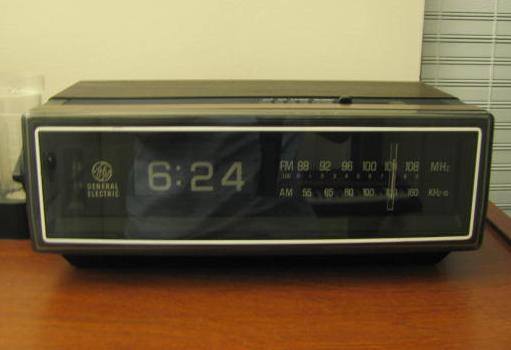The smart grid could make you late for work


Dust off your hour glasses. Steps that are being considered to modernize the electrical grid in the United States could disrupt electronics - like clocks and security systems -- that were designed for the status quo, the AP reports.
The Associated Press's primary source was a presentation by the North American Electric Reliability Corporation, a non-profit organization.
The Federal Energy Regulatory Commission (FERC) is considering whether to implement a year-long test to make the power grid more reliable by altering the frequency of the electrical current that passes through it. Common household electronics keep time through having a precise currency.
Utilities have traditionally held the frequency consistent for that very reason. FERC's work could introduce errors that will alter how accurately devices keep time. Naturally, cell phones and wrist watches would be exempt.
The American Reinvestment and Recovery Act allocated US$3.4 billion dollars to invest in smart grid technologies and other grid improvements. The funding was matched by private investment to the tune of over $8 billion.
Government officials are battling an aging energy infrastructure that has caused potentially dangerous power outages. The increasingly unreliable grid that has impacted some communities more so than others, but problems are widespread.
Nothing will be more constant than change as our energy demand increases and new technologies arise to meet that challenge. A sundry of vendors are preparing new solutions to help businesses and households manage energy use.
One day, the practice of leaving the television set on while sleeping will could become a thing of the past. Some of my sources are devising creative new ways to encourage people to conserve and take advantage of smart grid technologies that leverage social media.
Other companies such as Sigma Designs and ThinkEco have already gone public with energy management products for the home.
ThinkEco's "modlet" electrical outlets actually learn user behavior over time. The modlet will turn off an office water-cooler at night, or configure it so that a family’s big screen TV will not run during work hours. ThinkEco has a built-in override button that is accessible from smartphones.
Most of us are accustomed to clock radios, falling asleep while watching bad late-night TV, and office water coolers that keep water chilled all weekend even when nobody is around. Energy is now beginning to used more wisely, and that change will surface unexpected consequences.
You may want to set your cell phone's alarm clock just to be safe - the boss might not buy the excuse of electrical grid frequency changes making the clock run too slowly.
This post was originally published on Smartplanet.com